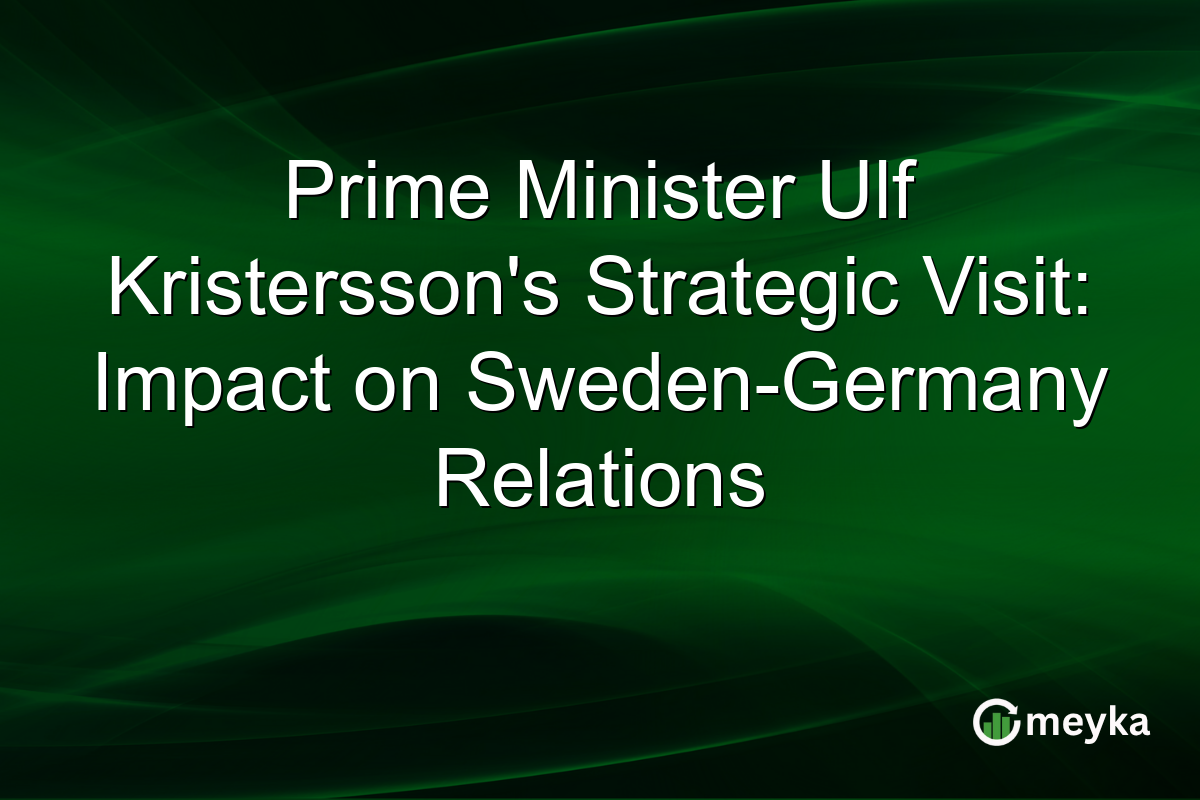Prime Minister Ulf Kristersson’s Strategic Visit: Impact on Sweden-Germany Relations
Swedish Prime Minister Ulf Kristersson’s recent visit to Berlin is more than just a diplomatic gathering; it represents a strategic move to enhance Sweden-Germany relations. Amid global economic fluctuations, Kristersson’s focus on strengthening trade is timely. Sweden and Germany already share a robust economic partnership, and this visit underscores efforts to deepen this relationship further. These discussions aim to boost bilateral trade and investment opportunities, a crucial step for both nations amid current global uncertainties.
Continue Reading on Meyka
This article is available in full on our main platform. Get access to complete analysis, stock insights, and more.
Read Full Article →





